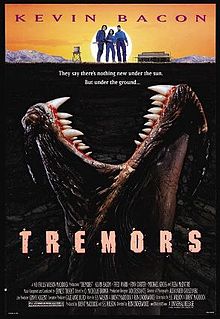 I’ve been asked several times about my inspirations for Zombie Ranch. I’ve gone over none too few of them in these articles over the years, and I’ve done enough of these articles I can no longer rightly remember if I ever gave Tremors its due. If I have, I apologize… but only somewhat, because I’m fully okay with praising this film twice. Come to think, I’m fully okay with praising it over and over and over until everyone in the whole wide world takes the hint and gives it a watch.
If you’ve already done so, good on you. If you haven’t, and you’re any kind of fan of monster movies, treat yourself to this gem from the year 1990, in those days before a lick of CGI had intruded itself upon the genre.
I’m not going to recap the plot for you, there’s plenty of other places out there to get your fill of that (including a recent review over on the Nostalgia Critic site which is pretty much entirely recap)… but if you see a ‘Jaws’ homage in the movie poster, there’s no way I’m going to deny that the filmmakers intended some similarities. This is a film that manages to bring sharks onto dry land in a way that’s not completely ludicrous. Not actual sharks, mind you, but a desert becomes an ocean, with deadly and voracious predators lurking just beneath the surface. The nature of the creatures is revealed patiently, in stages, until we (and the characters) are finally treated to their full disgusting glory. And even then, there’s still surprises in store.
There’s a deceptive simplicity, a competent humility, that runs through the whole film, which I believe is one of the reasons it’s resonated down through the decades. The cast is (with one exception) a bunch of rural Nevada yokels, and while that’s mined for some comic effect, the movie never sets itself above them. They have fairly realistic reactions to their situation, even as things start getting really, really weird and dangerous. In fact, in a lot of cases the decisions they make and the plans they come up with are quite a bit better and more practical than entire casts of supposed scientists and specialists often subject us to in other movies (lookin’ at you, Prometheus). Early on, people ignorant of the danger get picked off easily enough, but once the alarm is raised the monsters start really having to work for their supper, while the survivors try just as hard to avoid becoming supper.
Does Tremors have amazing character depth? Not really, but then I just got done recently writing about why that’s not necessarily a bad thing. I still don’t remember everyone’s names, even after just watching it again this week, but I do know that as the whopping 14 person population of Perfection, Nevada dwindles down, you start caring about the fates of those remaining. Even if you don’t know their names, or their hobbies, or what happened in their childhood… every one of them, even the token asshole teenager, becomes someone who you feel very, very much wants to stay alive, and you can’t help but have a sympathy for that considering the nasty fates of those who draw the short straws.
But as Dawn pointed out to me, for a movie not presenting itself as having much in the way of depth, it gets a lot of details right. A man cleans out the hooves of a horse before riding it. Another man, confronted with something alien but snake-like, treats it like he would a dangerous snake (again looking at you, Prometheus). The lone scientist of the bunch (a Seismologist) has enough curiosity to be excited over the discovery of a new lifeform, but enough sense to also run away from its teeth… and best of all, is frustrated when everyone keeps turning to her for answers she doesn’t have. They’re small bits, but I argue they make a huge difference in seeing these characters as the people they’re supposed to be.
Anyone who’s watched Tremors can never forget the golden moment that happens in a certain basement rec room, which people had wanted to see in every monster movie, ever. But it wouldn’t have had nearly the same impact if it weren’t for how carefully that scene is paced and (pardon the pun) shot. This is only one of the more obvious displays of the understated but thorough filmmaking skill that permeates the movie from beginning to end. The script provides necessary exposition in an economical, almost elegant fashion. Important set pieces are introduced without rubbing your nose in them being important later. The setting is so naturally isolated that you can easily buy these people falling off the grid for a few days without anyone outside the valley really noticing. 1990 was a year before horror movies had to start taking widespread cellphone usage into account, but even if it was set in 2012 Perfection looks very much like one of those places no one would have bothered to put up a tower.
Tremors is a movie that embraces everything to love about its genre, while avoiding some of its more groanworthy cliches. It delivers scares, but also maintains a sense of humor without straying over into parody; if I might stray into cliche myself for a moment, I’d contend that when you laugh, you’re laughing with the movie, not at it. It also makes me long for the good ol’ days of practical effects, of carefully crafted puppets covered in slime and dust that no CGI has ever been able to match in terms of being viscerally there.
But when we get back to Zombie Ranch, the movie’s biggest influence for me was probably in the idea of taking the “ignorant rednecks” that had mostly been villains and victims in horror movies, and making them heroes instead, capable of just as much ingenuity and perseverance in their own way as any crusading scientist or special forces badass. But on the other hand, still having moments like reacting to a dead alien thing with a haggling argument over how much it’d be worth to put on display in the general store, which never gets higher than twenty dollars. The scale of affairs is just different in Perfection… but it’s a consistent different. It’s an immersive different. You believe in this place and its people, and when you combine that with a great monster, imaginative action sequences, and a scenario that takes the old children’s game of “don’t touch the floor!” to a deadly extreme, you’ve got something special.
The echoes of Tremors may never be felt as strongly as those of movies like Them! or Alien, but the movie still holds up over twenty years since it rumbled its way into theaters. If you ask me if any of its numerous sequels are worthwhile, I can’t tell you there because I haven’t seen them. But the original comes with my highest recommendation. Watch it for fun, and then watch it for craftsmanship, and then watch it for fun again. And no need to worry about being afraid to go back in the water… the ground under your feet will be plenty scary enough.
I’ve been asked several times about my inspirations for Zombie Ranch. I’ve gone over none too few of them in these articles over the years, and I’ve done enough of these articles I can no longer rightly remember if I ever gave Tremors its due. If I have, I apologize… but only somewhat, because I’m fully okay with praising this film twice. Come to think, I’m fully okay with praising it over and over and over until everyone in the whole wide world takes the hint and gives it a watch.
If you’ve already done so, good on you. If you haven’t, and you’re any kind of fan of monster movies, treat yourself to this gem from the year 1990, in those days before a lick of CGI had intruded itself upon the genre.
I’m not going to recap the plot for you, there’s plenty of other places out there to get your fill of that (including a recent review over on the Nostalgia Critic site which is pretty much entirely recap)… but if you see a ‘Jaws’ homage in the movie poster, there’s no way I’m going to deny that the filmmakers intended some similarities. This is a film that manages to bring sharks onto dry land in a way that’s not completely ludicrous. Not actual sharks, mind you, but a desert becomes an ocean, with deadly and voracious predators lurking just beneath the surface. The nature of the creatures is revealed patiently, in stages, until we (and the characters) are finally treated to their full disgusting glory. And even then, there’s still surprises in store.
There’s a deceptive simplicity, a competent humility, that runs through the whole film, which I believe is one of the reasons it’s resonated down through the decades. The cast is (with one exception) a bunch of rural Nevada yokels, and while that’s mined for some comic effect, the movie never sets itself above them. They have fairly realistic reactions to their situation, even as things start getting really, really weird and dangerous. In fact, in a lot of cases the decisions they make and the plans they come up with are quite a bit better and more practical than entire casts of supposed scientists and specialists often subject us to in other movies (lookin’ at you, Prometheus). Early on, people ignorant of the danger get picked off easily enough, but once the alarm is raised the monsters start really having to work for their supper, while the survivors try just as hard to avoid becoming supper.
Does Tremors have amazing character depth? Not really, but then I just got done recently writing about why that’s not necessarily a bad thing. I still don’t remember everyone’s names, even after just watching it again this week, but I do know that as the whopping 14 person population of Perfection, Nevada dwindles down, you start caring about the fates of those remaining. Even if you don’t know their names, or their hobbies, or what happened in their childhood… every one of them, even the token asshole teenager, becomes someone who you feel very, very much wants to stay alive, and you can’t help but have a sympathy for that considering the nasty fates of those who draw the short straws.
But as Dawn pointed out to me, for a movie not presenting itself as having much in the way of depth, it gets a lot of details right. A man cleans out the hooves of a horse before riding it. Another man, confronted with something alien but snake-like, treats it like he would a dangerous snake (again looking at you, Prometheus). The lone scientist of the bunch (a Seismologist) has enough curiosity to be excited over the discovery of a new lifeform, but enough sense to also run away from its teeth… and best of all, is frustrated when everyone keeps turning to her for answers she doesn’t have. They’re small bits, but I argue they make a huge difference in seeing these characters as the people they’re supposed to be.
Anyone who’s watched Tremors can never forget the golden moment that happens in a certain basement rec room, which people had wanted to see in every monster movie, ever. But it wouldn’t have had nearly the same impact if it weren’t for how carefully that scene is paced and (pardon the pun) shot. This is only one of the more obvious displays of the understated but thorough filmmaking skill that permeates the movie from beginning to end. The script provides necessary exposition in an economical, almost elegant fashion. Important set pieces are introduced without rubbing your nose in them being important later. The setting is so naturally isolated that you can easily buy these people falling off the grid for a few days without anyone outside the valley really noticing. 1990 was a year before horror movies had to start taking widespread cellphone usage into account, but even if it was set in 2012 Perfection looks very much like one of those places no one would have bothered to put up a tower.
Tremors is a movie that embraces everything to love about its genre, while avoiding some of its more groanworthy cliches. It delivers scares, but also maintains a sense of humor without straying over into parody; if I might stray into cliche myself for a moment, I’d contend that when you laugh, you’re laughing with the movie, not at it. It also makes me long for the good ol’ days of practical effects, of carefully crafted puppets covered in slime and dust that no CGI has ever been able to match in terms of being viscerally there.
But when we get back to Zombie Ranch, the movie’s biggest influence for me was probably in the idea of taking the “ignorant rednecks” that had mostly been villains and victims in horror movies, and making them heroes instead, capable of just as much ingenuity and perseverance in their own way as any crusading scientist or special forces badass. But on the other hand, still having moments like reacting to a dead alien thing with a haggling argument over how much it’d be worth to put on display in the general store, which never gets higher than twenty dollars. The scale of affairs is just different in Perfection… but it’s a consistent different. It’s an immersive different. You believe in this place and its people, and when you combine that with a great monster, imaginative action sequences, and a scenario that takes the old children’s game of “don’t touch the floor!” to a deadly extreme, you’ve got something special.
The echoes of Tremors may never be felt as strongly as those of movies like Them! or Alien, but the movie still holds up over twenty years since it rumbled its way into theaters. If you ask me if any of its numerous sequels are worthwhile, I can’t tell you there because I haven’t seen them. But the original comes with my highest recommendation. Watch it for fun, and then watch it for craftsmanship, and then watch it for fun again. And no need to worry about being afraid to go back in the water… the ground under your feet will be plenty scary enough. We'll be at Pasadena Comic-Con this coming Saturday, May 24th. It usually happens in January but was delayed due to the wildfires since the Convention Center ended up being a refuge for the displaced -- fair enough considering our own close call with being displaced!
We should be at D2 in the Main Ballroom section, which is in light pink, under Clint & Dawn Wolf.










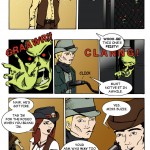
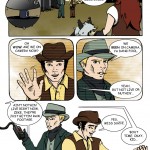
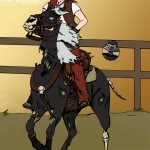
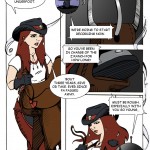
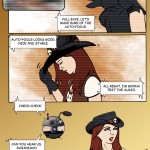

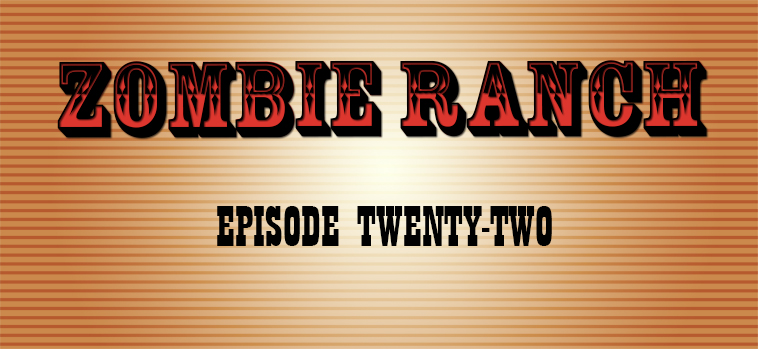
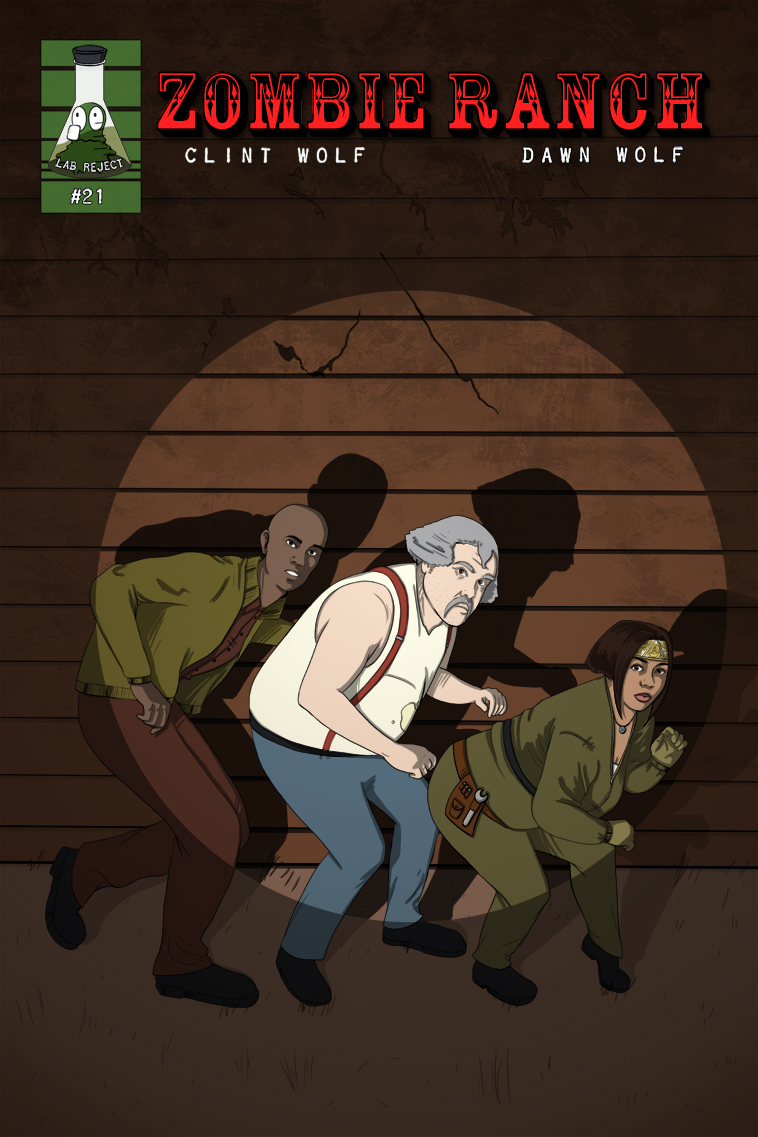
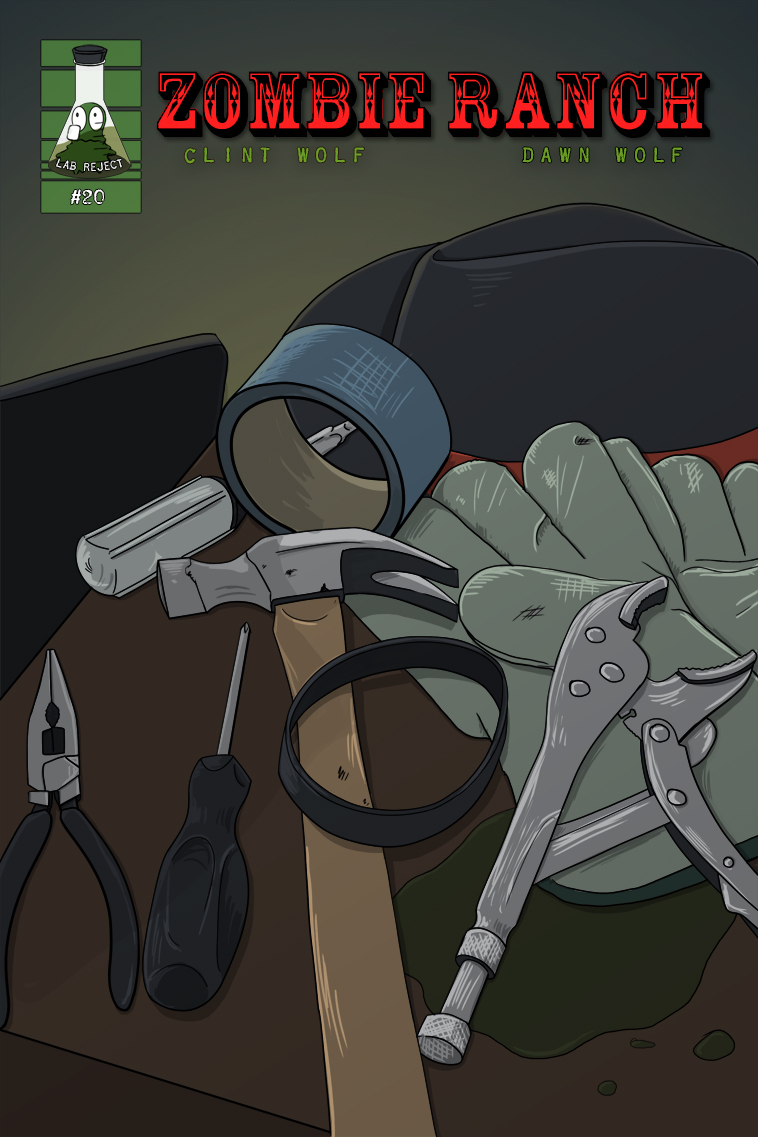
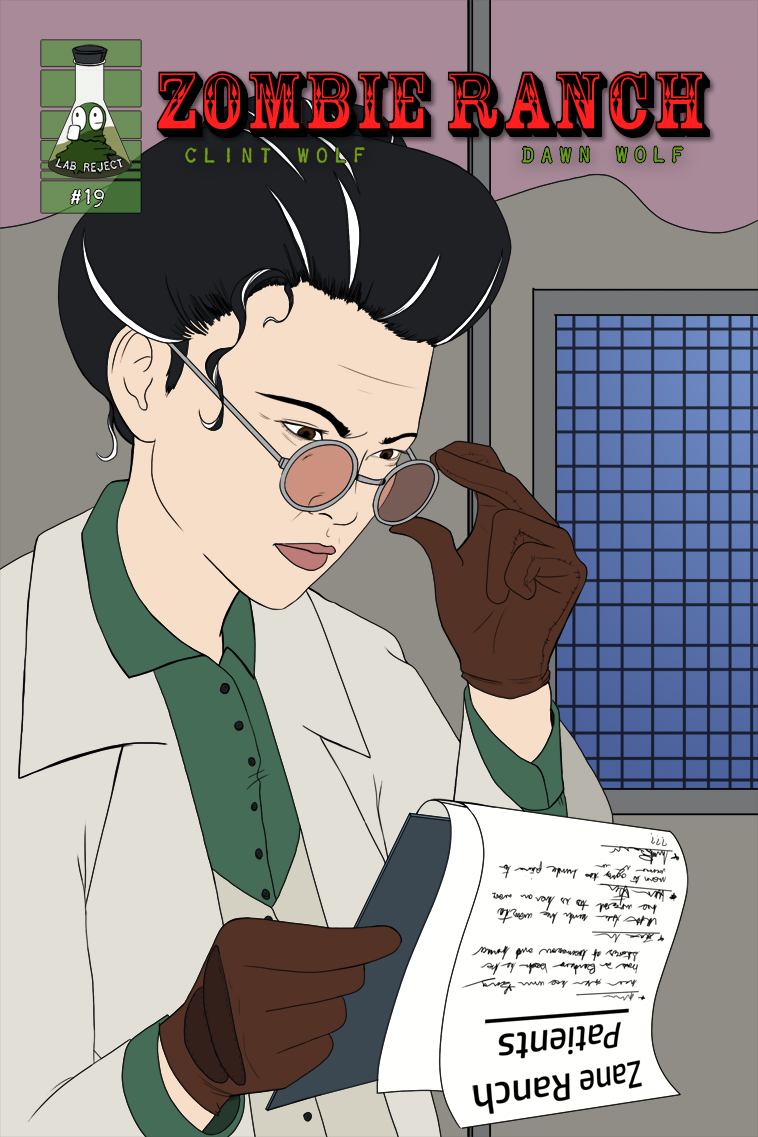
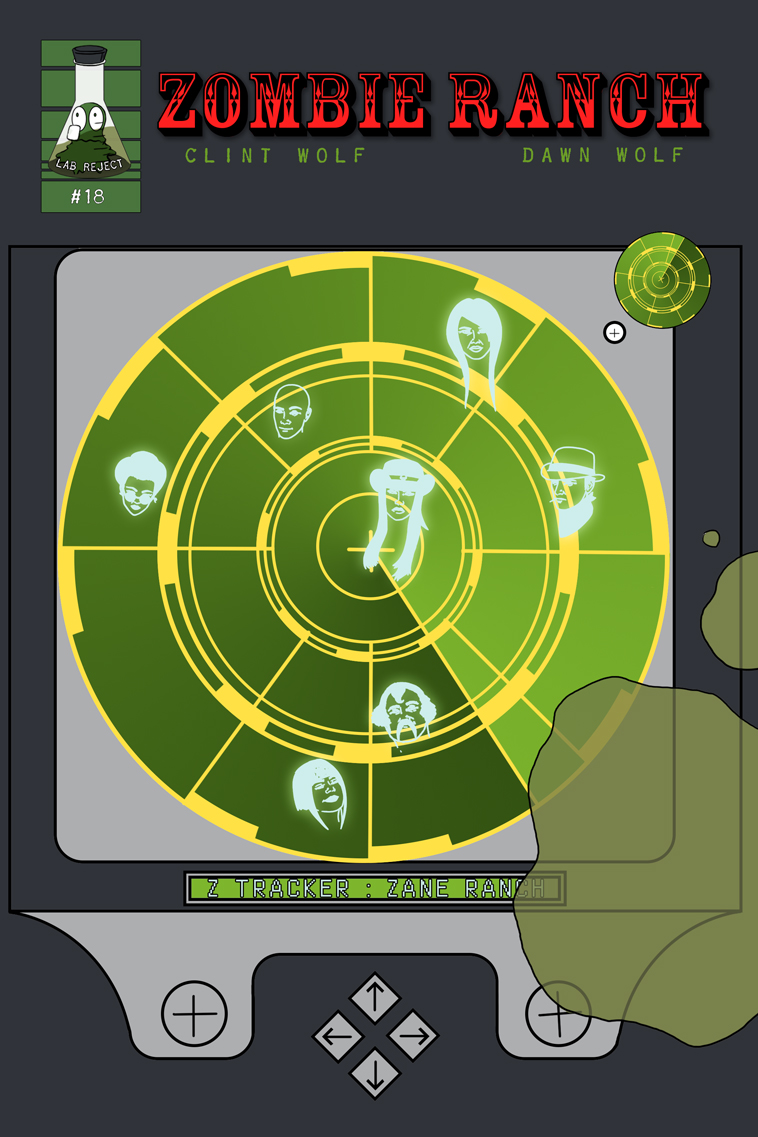
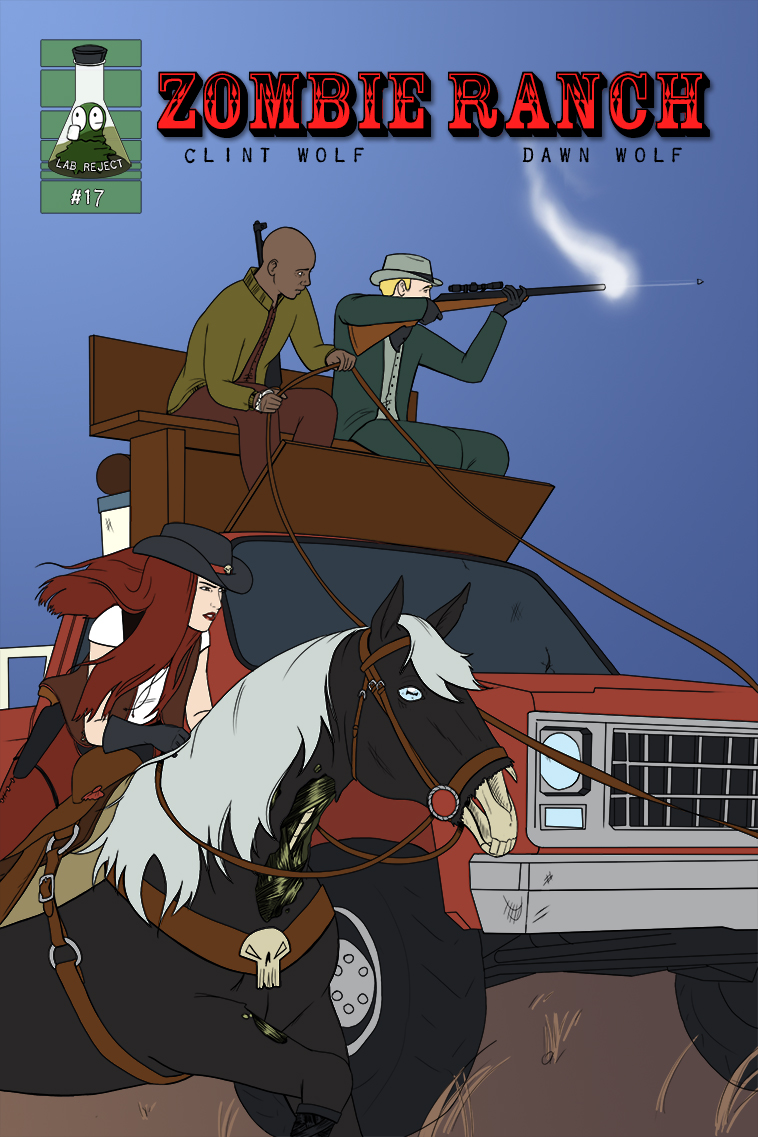
One thought on “544 – Hanker For A Hunker”
Dr. Norman (not a real doctor)
That feels like my life with my eyes these days …
“These goggles don’t got no magnification on ’em”